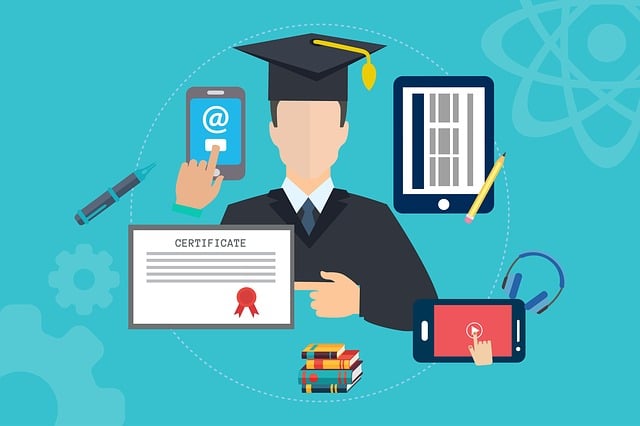Local tutoring and education services are specialized interventions that significantly improve student academic success by addressing individual learning needs. These services customize educational support, particularly helping students overcome difficulties with specific subjects through diverse instructional strategies and adaptive learning technologies. They offer flexible scheduling for timely assistance, create a collaborative environment to encourage active participation and self-confidence, and complement traditional classroom learning with additional resources to enhance academic development. These tailored approaches are crucial for students with learning disabilities, language proficiency issues, or those needing extra practice, ensuring they receive the targeted support necessary to reach their full potential. By fostering an inclusive and supportive atmosphere, local tutoring services promote equity in education and are proven to lead to improved grades, graduation rates, and a growth mindset among students, as evidenced by programs like 'Homework Heroes' in Ohio. These services are increasingly recognized as vital components of the educational support system and are highly regarded within the community for their impact on student achievement.
Local Tutoring and Education Services play a pivotal role in bolstering the academic success of struggling learners. This article delves into how these services adapt to diverse educational environments, identifying and addressing the unique challenges faced by students who need extra support. Through an exploration of effective strategies and sharing success stories from tailored tutoring programs, we highlight the transformative impact such interventions can have on learners’ journeys. Join us as we shed light on the critical support systems that make education accessible and equitable for all.
- Overview of Local Tutoring and Education Services as a Support System for Struggling Learners
- Identifying the Needs of Struggling Learners in Different Educational Settings
- Strategies and Success Stories: Implementing Tailored Local Tutoring Programs
Overview of Local Tutoring and Education Services as a Support System for Struggling Learners

Local tutoring and education services play a pivotal role in bolstering the academic performance of struggling learners. These services offer personalized attention, tailored to each student’s unique learning needs. They often provide additional instruction in subjects where students are experiencing difficulties, helping them to catch up with their peers. By employing a range of teaching methodologies and adaptive learning technologies, these services can effectively address individual challenges, whether they stem from learning disabilities, language barriers, or simply a need for extra practice and reinforcement. The flexibility of local tutoring programs allows for targeted support that aligns with each student’s schedule, ensuring that help is accessible when it’s needed most. Moreover, the collaborative environment fostered by these services encourages students to engage actively with their learning material, promoting both academic growth and increased confidence. These local tutoring and education services not only complement the strategies employed in traditional classroom settings but also serve as a vital safety net for learners who require additional assistance to thrive academically.
Identifying the Needs of Struggling Learners in Different Educational Settings

Identifying the needs of struggling learners within diverse educational settings is a multifaceted task that requires tailored approaches. Local tutoring and education services play a pivotal role in this process by offering personalized support that addresses individual challenges. These services often begin with a comprehensive assessment to pinpoint specific learning difficulties, whether they stem from foundational skills gaps, processing deficits, or other learning disabilities. Understanding the unique hurdles faced by each student allows these tutoring services to customize their teaching strategies and interventions. For instance, in classroom settings, a one-size-fits-all educational model may not adequately serve all students, especially those with distinct learning needs. Local tutoring centers, however, can provide targeted assistance, be it through small group sessions that foster peer learning or one-on-one interactions where attention is focused solely on the learner’s particular obstacles. By adapting to the individual’s educational environment and personal circumstances, these services help bridge the gap between a student’s current academic level and their potential, ensuring a more equitable learning experience across different settings.
Strategies and Success Stories: Implementing Tailored Local Tutoring Programs

Local tutoring programs have proven to be a pivotal resource for struggling learners, offering personalized support that adapts to individual needs. These initiatives often commence with a comprehensive assessment to identify the specific challenges each student faces, ensuring that the instruction provided is both relevant and effective. By leveraging local education services, these programs are able to tailor their approach, incorporating the unique cultural and socio-economic contexts of the communities they serve. A successful case in point is the ‘Homework Heroes’ program initiated by a small town in Ohio. This program not only saw a marked improvement in student grades but also fostered a growth mindset among participants. Volunteer tutors, many of whom are former students from the same district, provide one-on-one or group sessions that focus on reinforcing academic concepts and building critical thinking skills. The personal attention afforded by local tutoring allows for immediate feedback and adaptive learning strategies, which can significantly enhance student performance and confidence in their abilities. Additionally, these programs often create a supportive network within the community, encouraging a collaborative environment where success stories are shared and celebrated, thus motivating new learners to engage with the program. The long-term impact of such initiatives is evident in the increased graduation rates and the positive feedback from both students and educators, underscoring the importance of local tutoring and education services as a cornerstone for academic support.
Local tutoring and education services play a pivotal role in addressing the academic challenges faced by struggling learners. This article has highlighted the importance of identifying each learner’s unique needs across various educational settings, enabling tailored support to bridge gaps in knowledge and skill. The success stories presented demonstrate the efficacy of localized programs in enhancing learning outcomes. As such, it is clear that these services are not just beneficial but often indispensable for student success. Moving forward, continued investment in and expansion of local tutoring and education services will undoubtedly contribute to a more equitable educational landscape, ensuring that every learner has the opportunity to thrive academically.
